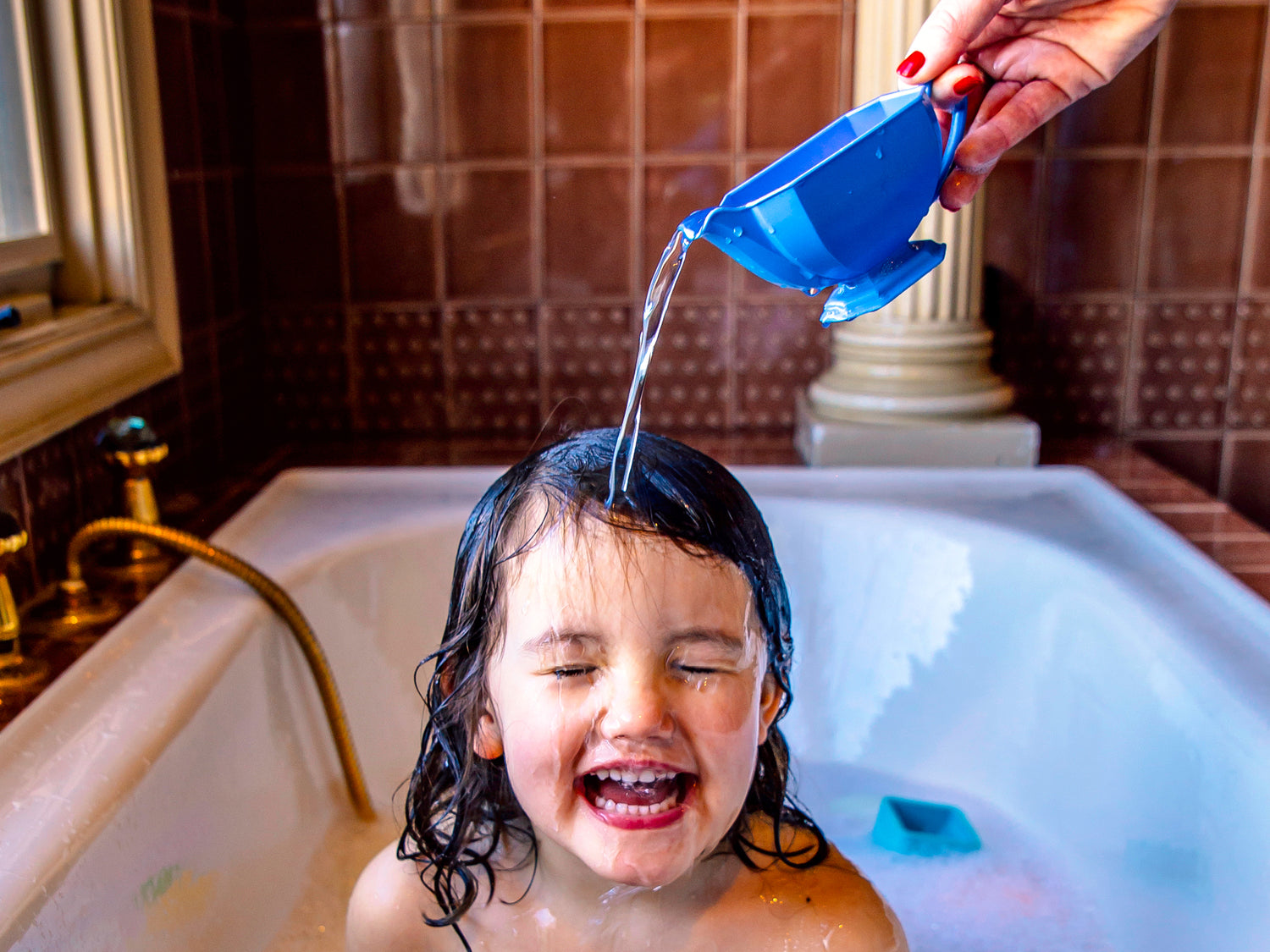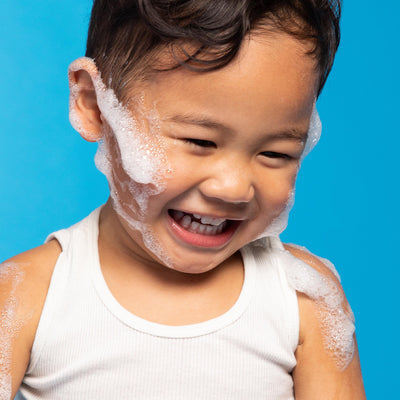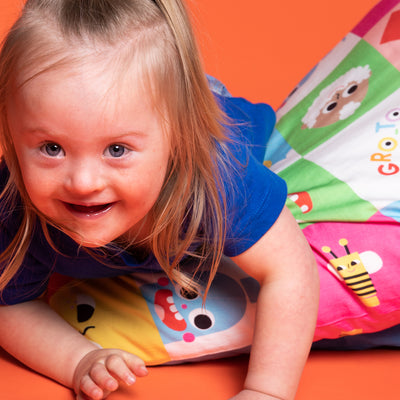
A relaxing head massage, a gentle rinse, and a clean, nice-smelling mop of hair. Sounds lovely! Delightful, even! But plenty of toddlers would hard disagree.
So what’s with all the tears and tantrums at hair washing time? If your little-big kids loathe having their hair washed, it might be because a single sudsy shampoo-in-the-eyes incident has turned them off the whole experience forever. (And the fear of getting something stingy in their eyes is real.) But, more likely, there’s something else at play.
Hair washing is a BIG sensory experience, with lots of different smells, textures and sensations – and it can be helpful to try to figure out exactly what your child is feeling overwhelmed by.
Maybe the most common reason kids don’t like getting their locks washed is a tactile sensitivity – a fancy way of saying they don’t like the feeling of shampoo and their head being scrubbed. Remember that all kids are different and prefer different kinds of touch, so while some little heads may be aggravated by light, gentle strokes, others may find more firm scrubbing uncomfy.
Some children can also be sensitive to having water poured on their head and body. The feeling of having water run over their face while getting their mop rinsed may make them panic that they’re drowning and can’t breathe.
So, just tip them back, yeah? While you know that you’ve got a strong hold on them, for a lot of little humans, who are already sitting on a slippery surface, this forcibly tipping backwards can make them feel insecure, unsteady and even a bit scared.
The good news is: By listening to your kid and giving them back some control, you can make this part of bathtime a whole lot easier. Hair washing gets much less stressful when you’ve figured out what your child likes. (Snake lollies! Dinosaurs! Gentle circular head rubs!)
Chat to them first.
Before they jump in the bath, ask your kid if they want to wash their hair today. If/when they say, “no!”, you can point out that they still have yesterday’s Weetbix in their curls and gently suggest helping them to wash it out with a soft cloth. If your kid is still really resistant, you might try asking them what they’re nervous about, or what they think could help make hair washing a better experience. Luckily, because young kids don’t have oil glands that are as active as grown-ups, they don’t need to wash their hair every day.
Let them take charge.
Hand over the job to your kid (almost) entirely. Give them the shampoo, let them squeeze the product into their hands and watch them rub it into their head. They might not do a perfect job, but they’ll find the pressure and rubbing motion that’s right for them. And you can always sneak in at the end to get the spaghetti sauce out from behind their ear.
Hold up a mirror.
A really useful tool for creating a sense of safety and control, a mirror can be incredibly helpful, as it allows nervous little nellies to see what’s going on, rather than just feel it. While they’re looking at themselves in the mirror, try distracting them by creating funny shampoo hairdos or pulling faces and giving them something fun to focus on. You can also try recording a video of your child having their hair washed, and encourage them to watch it back. Kids love watching themselves and it’s a great way to make them feel more comfortable about the process.
Play lots of water games.
Kids learn best through play. So, if you can, take water play out of the bath, and encourage your kid to muck around with water outdoors. Think: a pool, plastic tubs, a sprinkler or the hose. You might encourage your mini splasher to wash their toys, and eventually, try washing their own hair under the running hose. The goal is to keep it light, fun, and pressure-free.
Grab a bath visor.
They might look a bit ridiculous, but that’s part of the fun! These clever little hats are designed to stop water from getting in your kid’s eyes and ears, while you’re rinsing their hair. And they also negate the need for tipping back. Another option is to pop on some goggles – the sillier, the better. Laughter can go a long way to diffusing a stressful situation, for both of you.





Comments